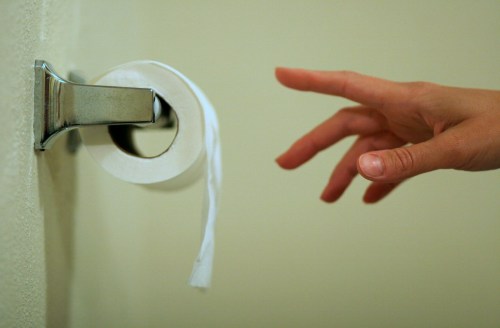‘I’m a Urologist, and You Should Follow the 20-Second Bladder Rule’
Urologists explain the 20-second bladder rule, and how it can help if you feel like you might be going to the bathroom too much.

How long does it take you to pee? It’s possible you’ve never counted but you might learn some things from trying. Paying attention to the number of seconds it takes you to pee is a good way to self-monitor your bladder habits, says Janis Miller, PhD, a nurse practitioner behind the interactive website MyConfidentBladder.com. In general, it should take about 20 seconds to pee. You can set a timer, or simply by counting “one-Mississippi, two-Mississippi,” Dr. Miller says. If you’re significantly over or under 20 seconds, you’re likely holding your pee too long or going too often.
What is the ’20-second bladder rule’
The 20-second bladder rule, as she calls it, is based on research from a group of mechanical engineering students at the Georgia Institute of Technology. The students were working on a project to figure out a better design for water towers. To study a more straightforward form of fluid dynamics, they visited the zoo and counted how long it took animals to pee from start to finish.
They discovered that almost every mammal, from elephants to rabbits, takes 21 seconds to empty their bladder on average. For humans, this equates to about one cup (eight ounces) of liquid. That means that if you’re drinking about eight cups of water per day, you should pee eight times, says Nicole Eisenbrown, MD, a urologist who practices in Florida.
Since other mammals are driven by the biological need to pee—unlike humans, who can be influenced by many factors — the 21 seconds rule provided a bladder baseline for mammals bigger than a hamster. The students ended up winning a 2015 Ig Nobel Prize for physics for their research — a satirical prize given to thoughtful and thorough research that’s a little, well, odd.
Odd or not, the zoo study provides an easy-to-follow guideline for bladder health. If your bladder is sufficiently full, it should take roughly 21 seconds to empty. Dr. Miller suggests rounding down to 20 seconds for simplicity’s sake and keeping track to see where you are on the spectrum. If you find that you almost always pee for significantly less or more than 20 seconds, consider examining your bladder habits: Are you drinking too much water or not enough? Are you giving yourself enough bathroom breaks during the day? Or are you using the bathroom more than you need to because it’s the only private place in your house? Your answers can help you to tweak your bladder habits.
Why do bladder habits matter
Typically, as your bladder fills, it begins to inflate like a balloon and sends signals to your brain as the pressure gets higher, as physiotherapist Heba Shaheed explains for TED-Ed. Your brain also talks to your bladder, essentially saying, “Hey, now isn’t a good time. Keep the floodgates closed.” When it is a good time (aka, when you’re on a toilet), you can open your urethral sphincter, which acts as those floodgates. But this brain-bladder communication can start to go haywire when you pee too frequently or infrequently.
Say you’re the type of person who gets so buried in their work that you forget to get up and go to the bathroom. Suddenly, it’s 6 p.m., and you’re rushing to the toilet for a 40-second release. Eventually, your brain will ignore“we’re full” signals, and overstretching your bladder will become your habit.
This is a condition that Dr. Eisenbrown calls “nurse’s bladder” or “teacher’s bladder” because it’s common in these professions. “People can’t leave the classroom, or they’re on a shift, so they purposely delay going to the bathroom,” she says. Long-haul truckers and shift workers may also have this problem. But over time, chronically over-extending your bladder will cause it to stop working correctly, Dr. Eisenbrown says. “It’s a slippery slope,” she says. “Your bladder just gets slightly bigger, then slightly bigger, and slightly bigger.” After years of this, your bladder muscles lose the ability to stretch and eventually stop working properly, Dr. Eisenbrown says.
The opposite can also happen. If you use bathroom breaks to relax, you might pee more often than you need. This trains your bladder to tell your brain it’s full when it isn’t, Dr. Miller says. As a result, you can develop an overactive bladder, which involves a strong urge to peel even when you’re not releasing much liquid. Doctors may prescribe medication for overactive bladder, but they may also suggest bladder training, which is essentially retraining your brain-bladder communication.
In short: the 20-second bladder rule helps you understand your habits so you can make changes that support your health. “That’s why I like it,” Dr. Miller says. “Because you can educate yourself into a good wellness pattern.”
Oh hi! You look like someone who loves free workouts, discounts for cutting-edge wellness brands, and exclusive Well+Good content. Sign up for Well+, our online community of wellness insiders, and unlock your rewards instantly.










